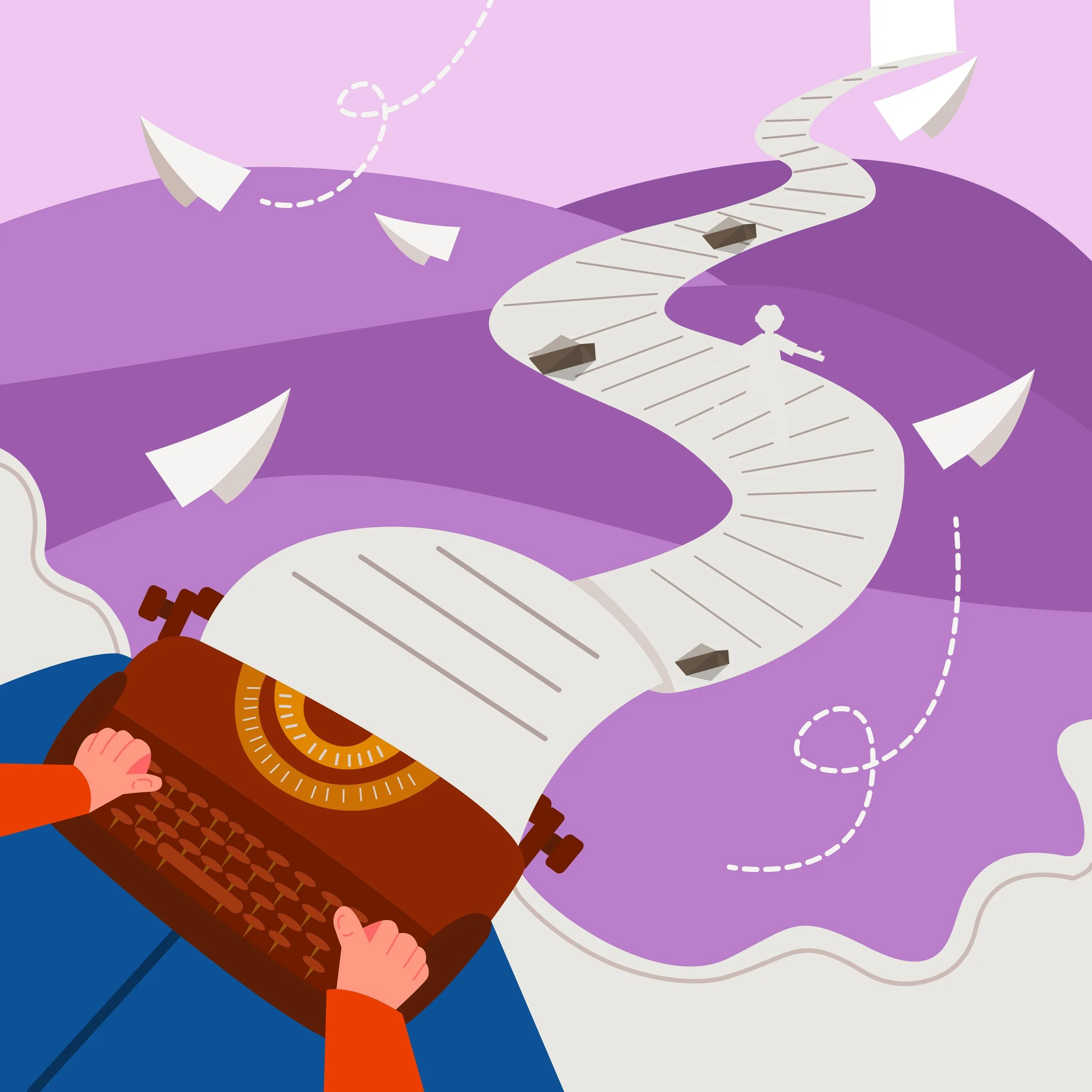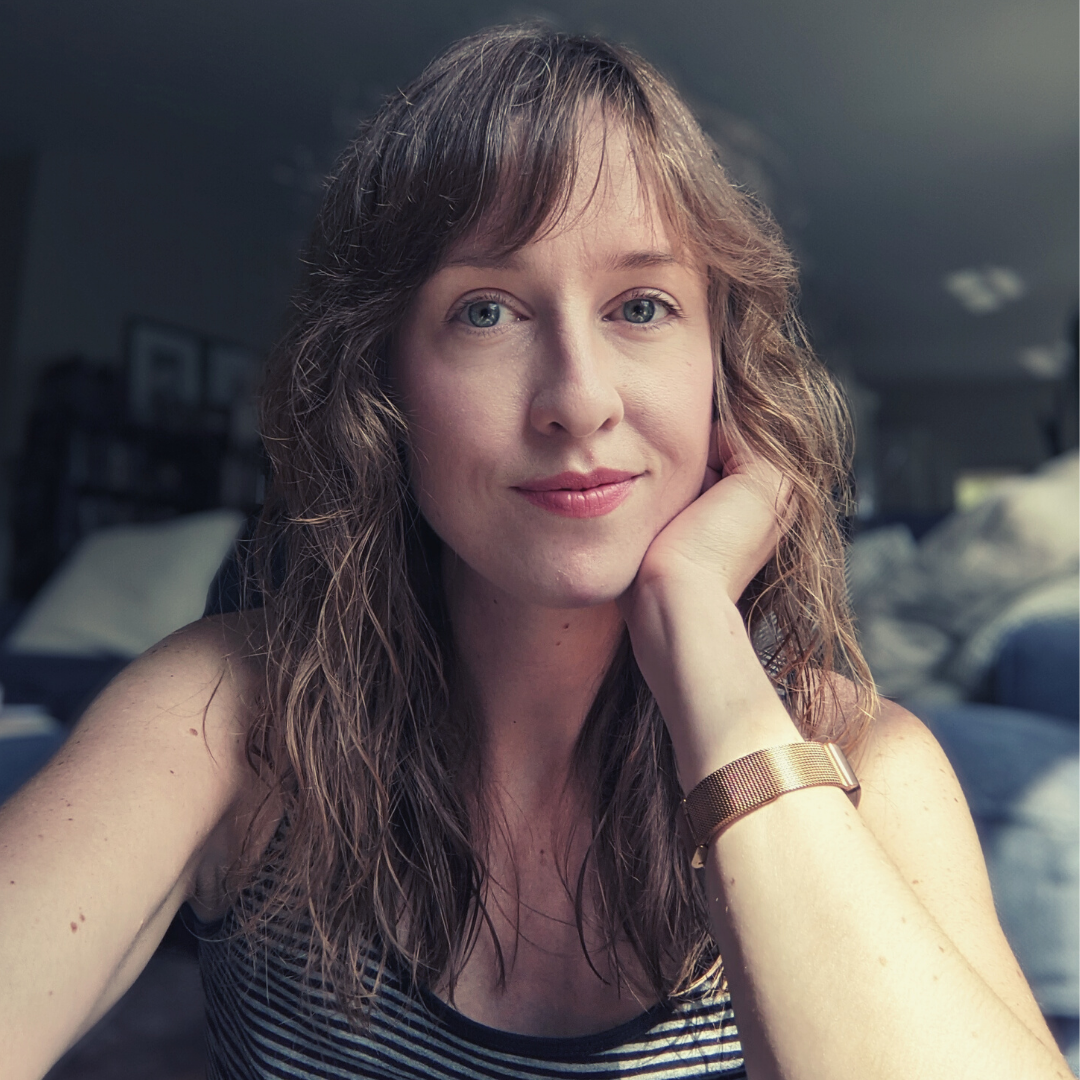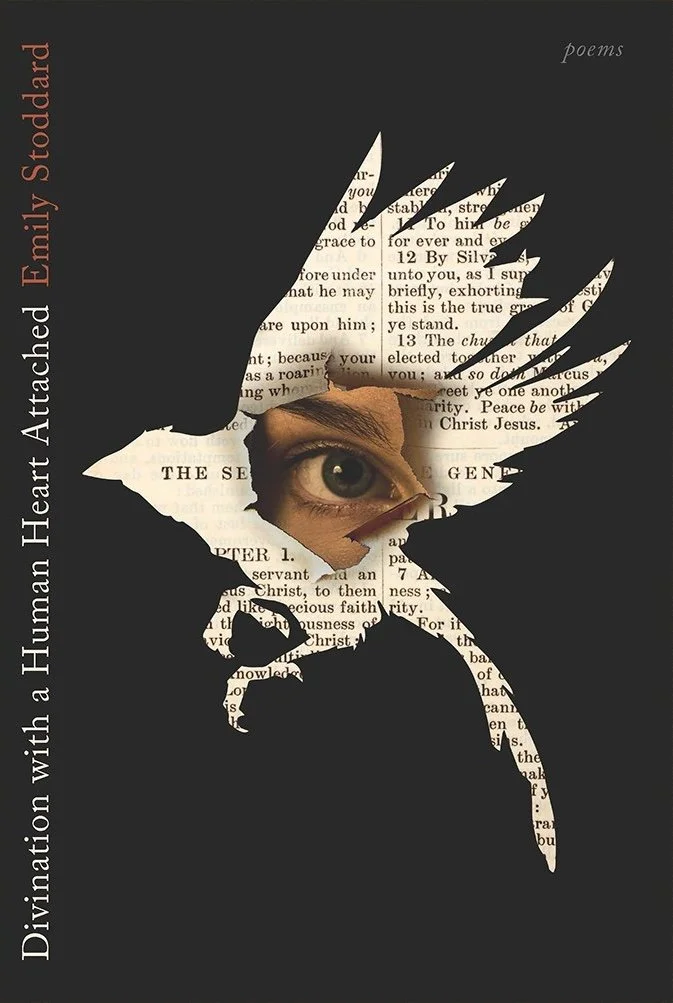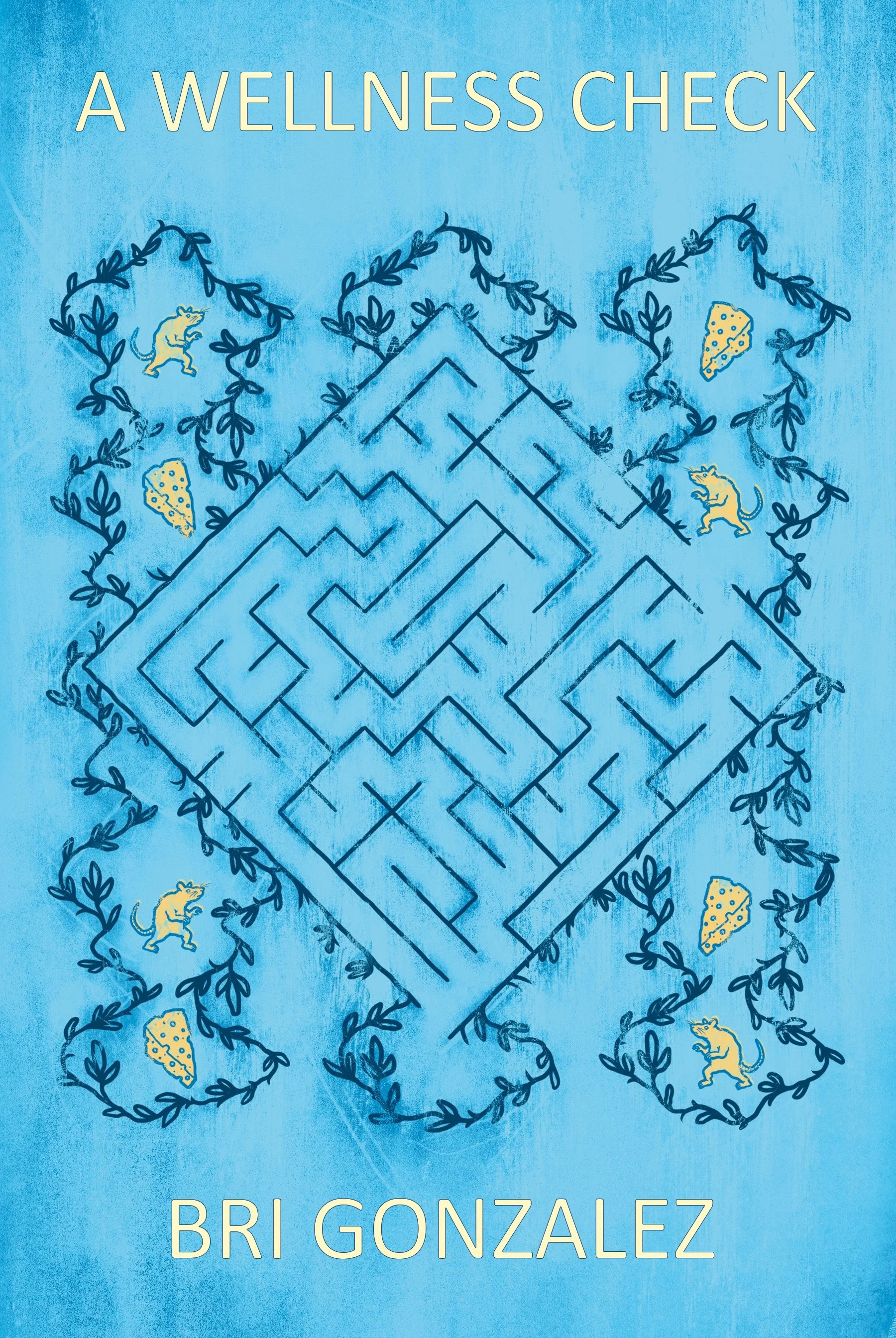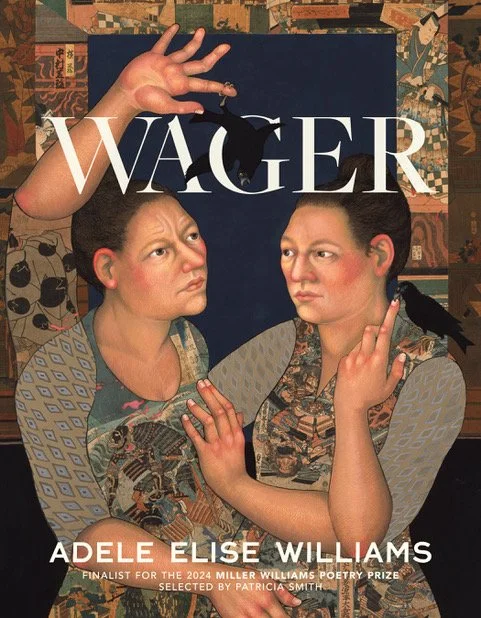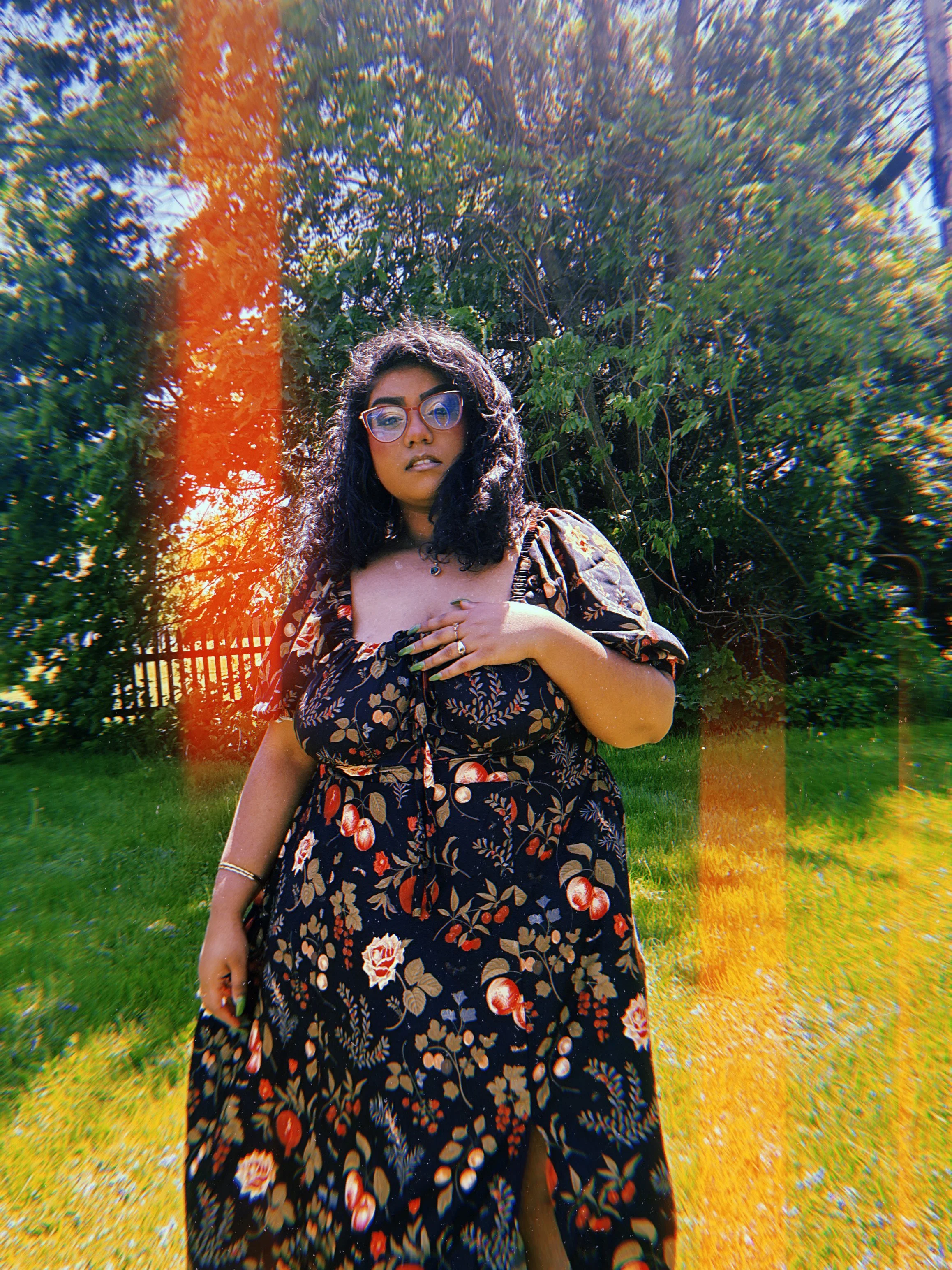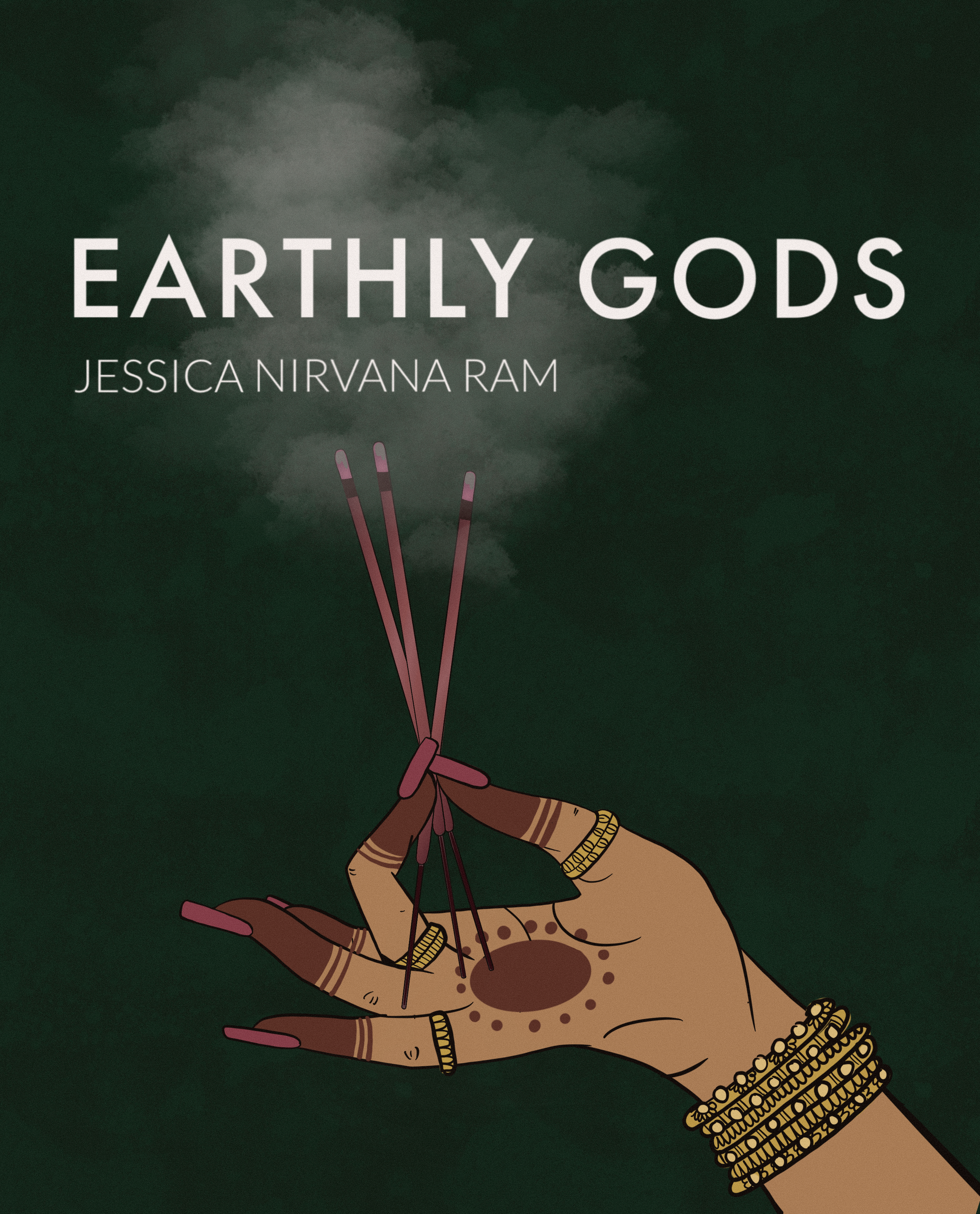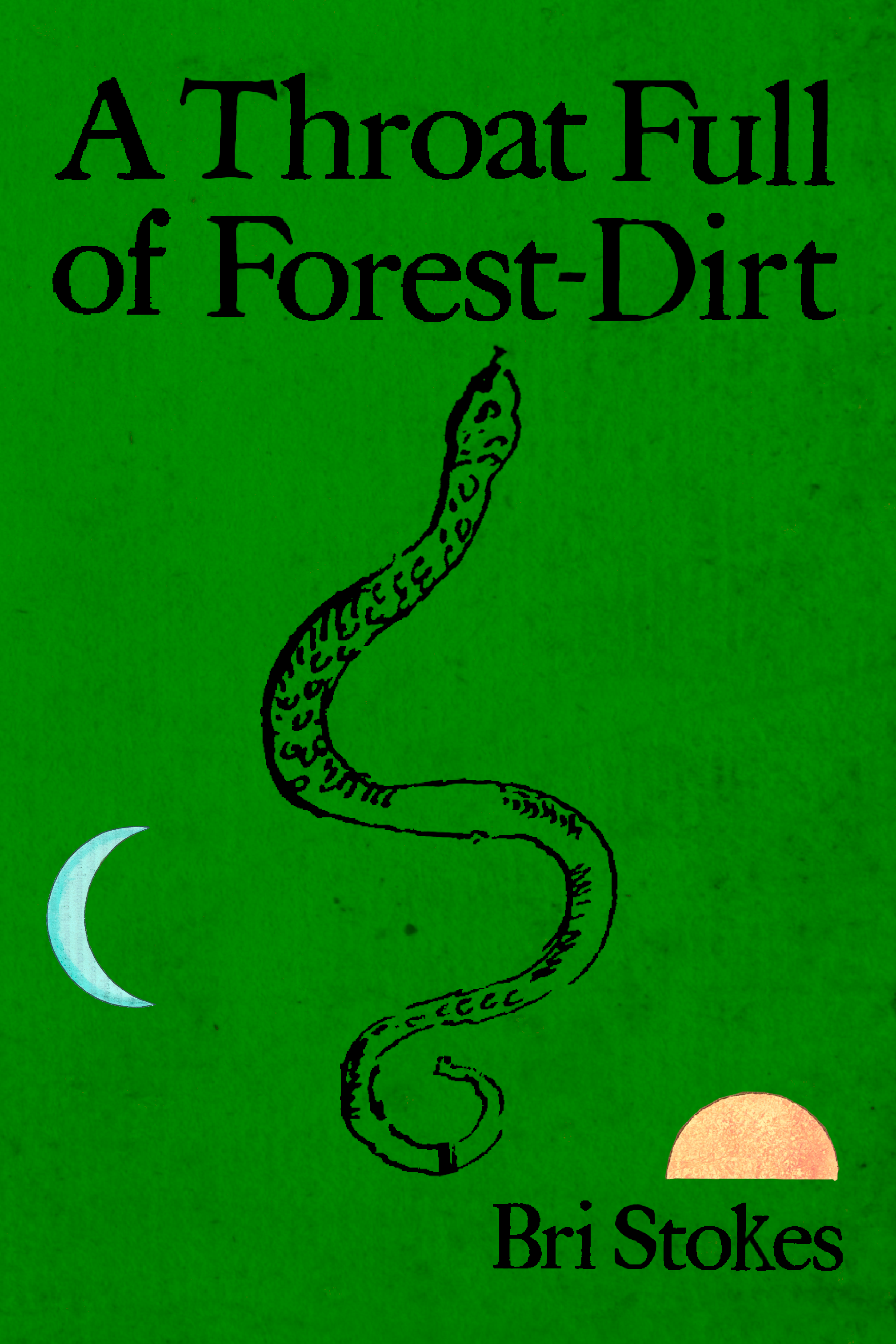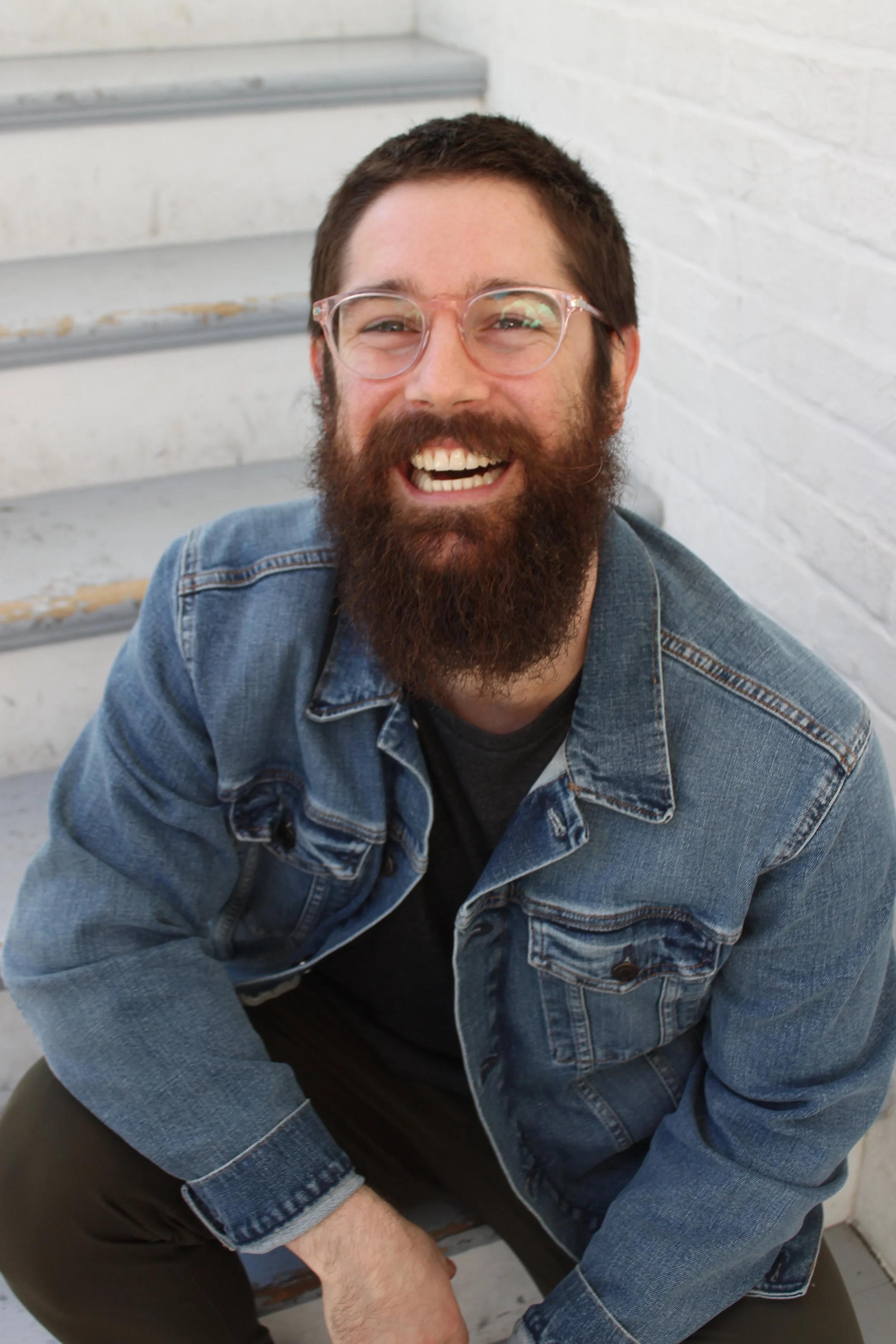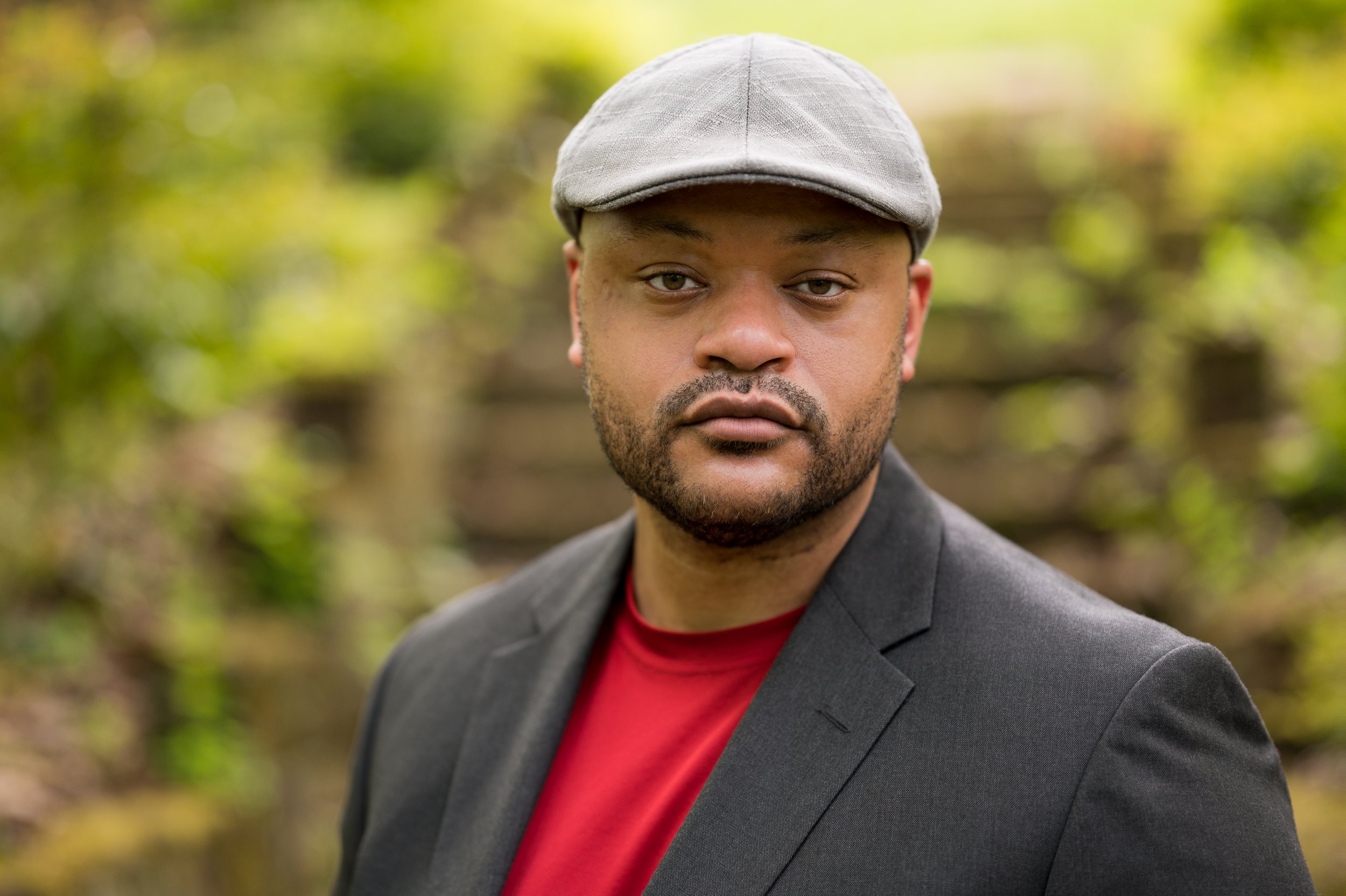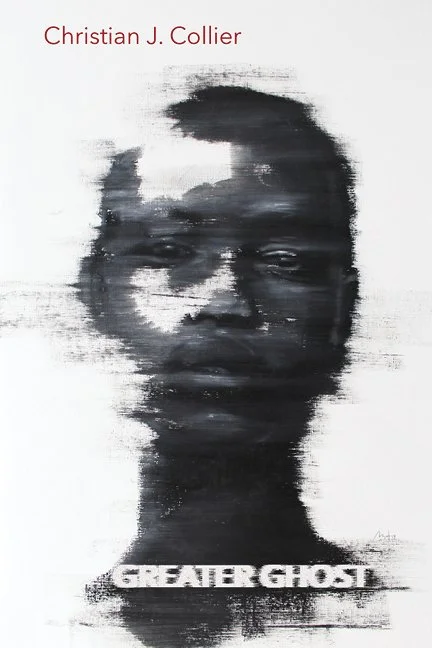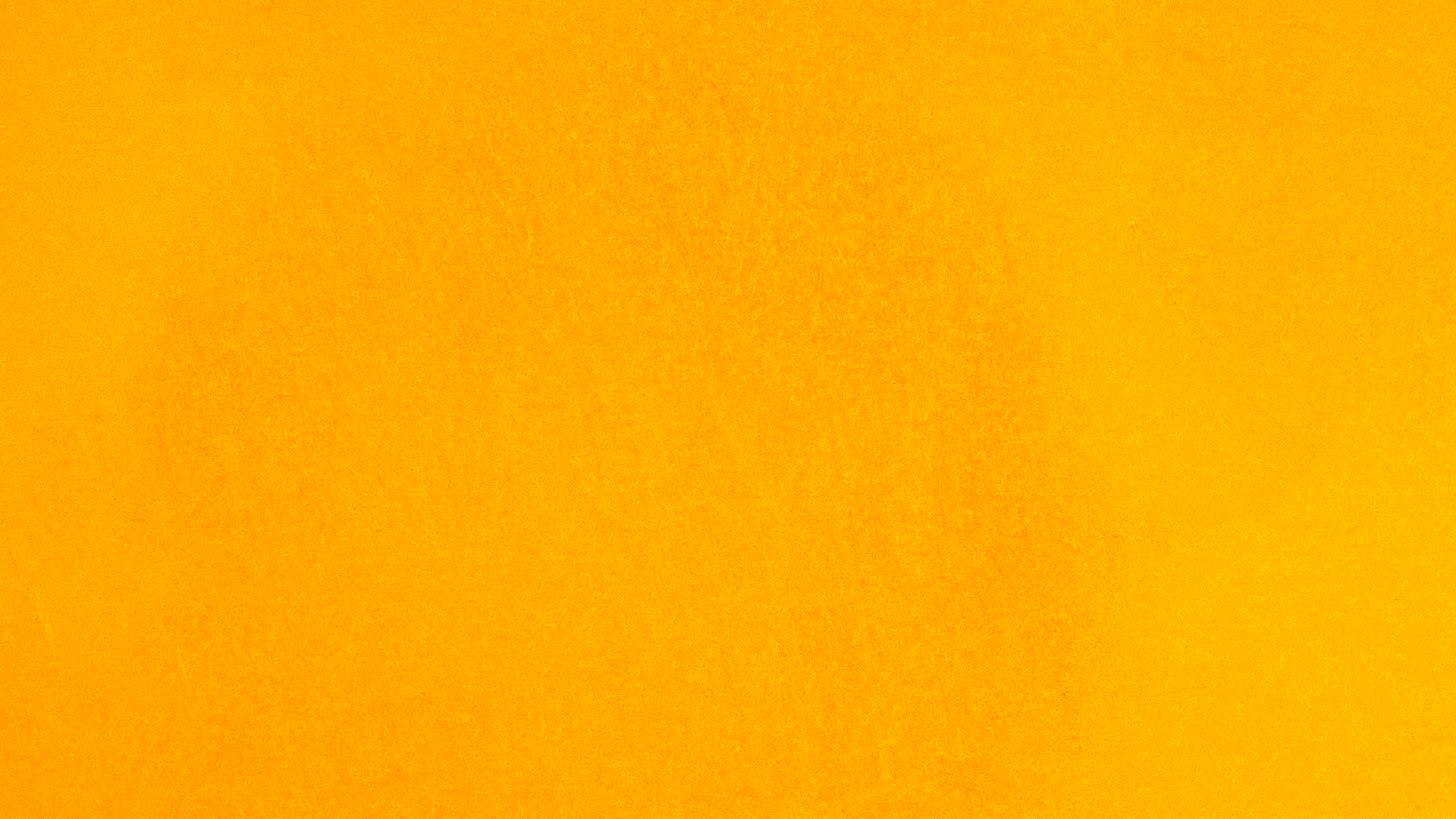
October 3, 2024
2024 Debut Poets Series
10 Poets Discuss Their Experiences Publishing Debut Poetry Collections
Compiled by Justine Payton
Contributors to the 2024 Debut Poets Series
Emily Stoddard’s writing appears in the Kenyon Review, Belt Magazine, Radar, and elsewhere. She’s a past recipient of the Developmental Editing Fellowship in creative nonfiction from the Kenyon Review and coordinates the Poetry Bulletin.
Divination with a Human Heart Attached
(Game Over Books)
Bri Gonzalez is a queer, Chicane writer from San Antonio, TX. Their debut hybrid collection parodies Batman in order to process clinical diagnosis and its reception in media. In their free time, they bother their cat, Dahlia, and play too much D&D.
A Wellness Check
(Game Over Books)
Derek JG Williams is an American writer and the author of Reading Water (Lightscatter, forthcoming), selected by Eduardo Corral as the winner of the 2023 Lightscatter Press Prize. He is also the author of Poetry Is a Disease (Greying Ghost, 2022).
Reading Water
(Lightscatter Press)
Adele Elise Williams is the author of WAGER selected by Patricia Smith for the 2024 Miller Williams Poetry Series. With Dana Levin, she is co-editor of Bert Meyers: On the Life and Work of an American Master.
WAGER
(University of Arkansas Press)
Robert Okaji has stage 4 metastatic lung cancer. He lives in Indiana with his wife—poet Stephanie L. Harper— stepson, and cat. His poetry may be found in Only Poems, Vox Populi, Shō Poetry Journal, Verse Daily and other venues.
Our Loveliest Bruises
Jessica Nirvana Ram is an Indo-Guyanese poet. She is the author of the poetry collection Earthly Gods (Variant Literature, 2024) and the chapbook in the aftermath (Prismatica Press, 2024).
Earthly Gods
(Variant Literature)
Bri Stokes is based in Los Angeles. Her writing has appeared or is forthcoming in BuzzFeed, Northridge Review and others. She is a former poetry editor at the disbanded Hecate Magazine. Bri also served as Managing Editor of Issue 04 of SKEW Magazine.
A Throat Full of Forest-Dirt
(Bottlecap Press)
Miriam Kramer is a queer poet. She loves stick figure drawings, bright sneakers, and embroidery. Her debut collection, Built by Storms, was nominated for The Lambda Literary Prize and The New Writers Award, Great Lakes College Association.
Built by Storms
(Write Bloody Publishing)
Nicholas Molbert was born and raised on Louisiana’s Gulf Coast and now lives in Los Angeles. He is the author of the chapbooks Goodness Gracious and Cocodrie Elegy.
Altars of Spine and Fraction
(Northwestern University Press / Curbstone Books)
Christian J. Collier is a Black, Southern writer who resides in Chattanooga, TN. He is the author of Greater Ghost (Four Way Books, 2024), and the chapbook The Gleaming of the Blade, the 2021 Editors’ Selection from Bull City Press.
Greater Ghost
(Four Way Books)
How long were you writing before you published your first book?
I dabbled at it for nearly thirty years, with little success. In 2012, I began writing daily. From there I participated in a few workshops. Twelve years later, my book is being published. There was nothing linear or organized about the process. — Robert Okaji
I've been writing fiction and poetry since I was about nine years old! Growing up, writing always doubly served as an outlet of expression and an avenue for escapism. — Bri Stokes
Since childhood; being a poet has been a core part of my identity since an early age, but I only started owning it as such in my early 30s. I started writing with the true desire to be published for about 8 years before my first book was published. — Miriam Kramer
My mom claims I wrote a poem in middle school called "Theodore at the Line," but I don't really remember that. I'd say I started writing in 2013. — Nicholas Molbert
What was the hardest part of the publication process?
Long, quiet feedback loops. Missing or being unable to afford a deadline means waiting a year for when a press opens again. And even if you make it to finalist rounds, it's often just a wordier form rejection, without feedback to keep going. — Emily Stoddard
Reducing a large mass of material into a cohesive manuscript. I did not set out to write a book. There was no plan. No single subject compelled me. I write individual poems on diverse topics, which added to the difficulty. — Robert Okaji
For me, the hardest part was finding a press that fit my book's aesthetic. I employed pop culture references & less traditional poetic forms, which either didn't fit the style of a given press or were risks that presses weren't interested in. — Bri Gonzalez
Submission fees. I was living off of a fellowship stipend while I was submitting my collection and there were definitely times I couldn't submit because I just didn't have the money. — Jessica Nirvana Ram
Maintaining tenacity, as well as sustained faith in my work. All the greatest difficulties happen internally. You have to consistently believe in yourself and learn to quiet the voices that would disrupt you from your dreams. — Bri Stokes
What surprised you the most about the publication process?
I had a lot of freedom over my book cover! I always thought it would be a joint process but my publisher let me pick the artist and commission the piece all to my specifications, which was really lovely. — Jessica Nirvana Ram
My editor, Lisa Bickmore, has given me some great feedback on the manuscript. Friends and colleagues have told me that the level of support and feedback I’ve received thus far is not the norm. I’m very appreciative of this. — Derek JG Williams
The generosity and care of my press' staff surprised me most despite them having many other writers on the catalog. — Nicholas Molbert
Along with all the excitement and joy, there were more complicated feelings. I know so many people who want to be published, and I felt something akin to survivor's guilt that it wasn't happening for all of us. — Miriam Kramer
After reading for a few publications, my biggest surprise is how subjective the process is. All work isn’t read with the care and attention we’d hope for. For example, sometimes, people hate your cover letter, and it shapes how they read your work. — Christian J. Collier
How did you choose your publisher?
I admire the writers they publish, who I want to learn from/with. And I loved how Game Over was in solidarity on issues of equity and fairness, especially when problems came to light at SPD. They're a no-bullshit press in spirit and in practice. — Emily Stoddard
I was very discerning about this. I sent to Lightscatter because Eduardo Corral was the judge, and I thought he might be open to my own work. I was also intrigued by the multi-modal concept the press includes as part of publication. — Derek JG Williams
Serendipity! The instructor of a workshop I took was the acquisitions editor of the press. She asked if I had a manuscript. You dream about this happening, but it never does. Except it did. Two rejections and six years later, here we are. — Robert Okaji
Tired of contests, I turned to querying university presses, and I've always admired Northwestern's poetry catalog. Also, I wanted to be a part of their new imprint dedicated to early- and mid-career poets. — Nicholas Molbert
For aspiring writers, how important do you think it is to establish a strong author platform?
Substitute "flash mob" for "platform" in posts about this, if you're tired of it and need a laugh. To me, relationships matter. The writing and the vocation are important. Everything else is a tool to create with, not a platform to perform for. — Emily Stoddard
I have mixed feelings about this. I think some writers concentrate more on their "brand" than their work. I can understand how platforms might be of interest and use to publishers, but as a reader, I want to be moved by the writing, which is ALL. — Robert Okaji
Our relationships with writing are paramount. Establishing a strong platform is important; it's how we expand readership and promote work. But I think what's vital is making space to curl up with our writing. Savoring our creative processes. — Bri Gonzalez
I definitely think building a platform helps in terms of presses and agents being able to have a sense of who you are prior to publication. Also, connecting with other writers and readers provides spaces of community that I've found invaluable. — Bri Stokes
I don't think it's super important. Having a larger platform can help get your work out there, but the quality of your work will always be the most important thing and that quality will speak for itself. — Miriam Kramer
I wouldn't say I have a strong author platform. Having a close circle of writers able to give you unvarnished feedback, I believe, is most important. — Nicholas Molbert
Do you feel the literary world makes book publishing accessible to poets?
NO: I’ve researched this since 2018 through the Poetry Bulletin, a project that began as I submitted my book. I track 175+ reading periods. Over 60% exclude poets who can’t afford fees, and the average fee is also higher for first book reading periods. — Emily Stoddard
NO: The literary world is a business. I’m most excited to see small presses launching and building something from the ground up. We need to remake the literary world to make it better and more accessible. — Derek JG Williams
NO: Poetry is one of the hardest and least paid genres to get published in, especially book publishing. There simply isn't enough money for the work. The idea of making a career as a poet is almost impossible to imagine. — Miriam Kramer
YES: Because poetry tends to operate in a fairly grassroots fashion, I think it’s very accessible. However, it really depends on how one views the literary world. If we’re talking bigger or the biggest publishing houses, probably not. — Christian J. Collier
If you could wave a magic wand and change one thing about the publishing world, what would it be?
More support for the arts from our governments would mean more money for writers, would mean more books, would mean more time for writing. Creation takes copious amounts of time. We lack it. — Derek JG Williams
Cost to enter contests and open-reading periods, as well as greater aesthetic diversity. Especially the latter. — Adele Elise Williams
I'd love for there to be more funding for poets. For their books, for their tours, for their marketing. So much of it falls to the individual writer and while I wish it wasn't this way, money would make things so much easier. — Jessica Nirvana Ram
That agents, presses and journals would always evaluate writers solely on the merit of their work, rather than on accolades, degrees or the sizes of their platforms! — Bri Stokes
Abracadabra! My trick: all submission fees have disappeared. — Bri Gonzalez
Where did your writing education come from (MFA, self-taught, avid reader, etc.)?
A mix of workshops and retreats, informal writing groups, a weekly writing time with my oldest writing friend, a fellowship with the Kenyon Review, slow reading, and lots of time beneath trees and with bodies of water. — Emily Stoddard
I was lucky to earn an MFA and PhD in Creative Writing. I certainly learned a ton from the professors and curricula I encountered in those programs, but I learned so, so much more from my peers in the programs. — Nicholas Molbert
I have an undergraduate degree in history, and no formal education in poetry. I've always been a curious person and a voracious reader, though the reading was largely undirected and haphazard. Some guidance would definitely have smoothed the way. — Robert Okaji
I am primarily a self-taught writer. I wrote without training or a writing community until entering an MFA program at 33. Now, after 7 years of graduate school in literature and creative writing, I am "trained"—this is a great tension of my work. — Adele Elise Williams
All of the above. Growing up, I didn’t know anyone in the arts and no one in my family had gone to a college or university. I was lucky to fall into a community of artists during my twenties, which later led me to go pro. — Derek JG Williams
How do you see your book fitting into your larger career goals or writing ambitions?
Book publication never factored into my career plans. My first goal was to have a book published by age 30. Then 40, 50, 60. I am content in my failure. And frankly, this book is so much better than what I would have produced then. — Robert Okaji
My hope is that this book helps pave the way for my next books. I look forward to getting the collection out into the hands of readers. I miss doing readings in person. My most pure goal is just to perform and connect with a room of people again. — Derek JG Williams
As a book is required for most Assistant Professor positions (which is my goal), this book is critical! More personally, I've been a low-income service worker for most of my life, and this book means that I am more than those (limiting) things. — Adele Elise Williams
I no longer work in academia, so I'm untethered from the need to publish to keep my job. So, I write to stay connected to the larger poetry community and to interpret, wrestle with, and digest past experiences. — Nicholas Molbert
I want the book to be a door. A step toward connections with other writers and opportunities that will help me continue to grow this career into something long-term. I want writing to be a lifelong pursuit. — Jessica Nirvana Ram
What advice do you have for poets looking to get their first book published?
Focus on the writing, not the publishing. If you put your all into the poems, you'll know when it's ready for the rest of the world to see. Don't stress about the timeline. There is no deadline for your first book, but you only have one debut. — Jessica Nirvana Ram
Keep going! Believe in yourself, in your manuscript, and keep fighting for it. Don't self-reject. Keep showing up, keep submitting, keep querying. You have to believe in the work, first and foremost, in order for others to. — Bri Stokes
Be tough. Be persistent. Be ruthless in revision. Be open to feedback. Find your readers, the ones who understand your project. Listen to them. Write for yourself. Write something for someone you love and share it with them. — Derek JG Williams
Keep at it. It's what I didn't want to hear after the 5th or 6th year submitting to poetry contests and getting rejected, but it's what got me through. When rejections are rolling in, focus on the next poem. — Nicholas Molbert
If you could go back in time and change one thing about your publishing experience, what would it be?
My own expectations. I had some unrealistic expectations about what having a book published would be like, and wasn't gentle with myself when they weren't met. I would love to go back and give that version of myself a big hug. — Miriam Kramer
Without an agent (which poets typically do not have!), it is daunting to get your book out there. I totally flubbed on pre-publication reviews. Setting up readings WAY in advance is clutch as is considering how to raise/save money for a book tour. — Adele Elise Williams
I would have taken the lead on requesting blurbs. I originally had my publisher ask and we got no responses. A few months later I reached out to my contacts directly and heard back immediately. I think a personal touch matters with blurbs. — Jessica Nirvana Ram
I wouldn't change anything about it! I'm very grateful to have been published, and for the all the things I learned along the way, even amidst the challenges. — Bri Stokes
What's next on the horizon for you?
I've another manuscript that I'd love to see published. But realistically, my horizon is hazy. A year ago I did not think I'd be alive at this date. One day at a time, and all that. A poem here and there. My wife's kisses. Laughter. Birds. Love. — Robert Okaji
I'm looking forward to doing events with Altars of Spine and Fraction. It's a time to celebrate, meet new people, meet readers, and be in community with those poets who have inspired me along the way. — Nicholas Molbert
I'd love to find a literary agent! I'm working on a high fantasy novel that's very grand in scope and scale, and I'm hoping that an agent can help me provide it with a platform that mirrors its expansiveness. — Bri Stokes
Does this statement feel true to you? "Any and all challenges were worth it to see my book published and out in the world.”
YES: Because why the hell not. — Derek JG Williams
NO: I have immense pride and belief in my work, and I'm lucky to see its debut. But some of the industry roadblocks I faced felt more disrespectful to emerging writers than a challenge that made my success "worth it." — Bri Gonzalez
I answered no to this question but am more of a "maybe." I have beef with how exclusionary the poetry publishing industry can be. That said, of course it was all worth it! In the end I got exactly what I wanted, and that is a newer thing for me. :) — Adele Elise Williams
My book isn't out yet but the lead up has been a dream come true. Getting blurbs from poets I admire, seeing endorsements from friends and family, having a cover designed. I feel really lucky that the work I put in is paying off. — Jessica Nirvana Ram
Possibly the hardest question of the interview - what poet inspires you the most right now and why?
Dorothy Chan. Their poems are playful and voracious, brimming with queer delight and deviancy. Their language! Every detail has its own universe. I adore how Dorothy's work consumes a page (literally and figuratively), like bright hypnotism. — Bri Gonzalez
Rasha Abdulhadi. Their language, their call for clarity over cleverness. I'm a recovering cynic because of an earlier career in philanthropy, and Rasha's writing has helped me trust the (imperfect, ongoing) work of solidarity again. — Emily Stoddard
I have two: James Baldwin and Sylvia Plath. Plath knew how to communicate pain and mystery in a way I find really inspiring. Baldwin could turn pain into a rallying cry. I can only hope to do the same with my work one day. — Bri Stokes

